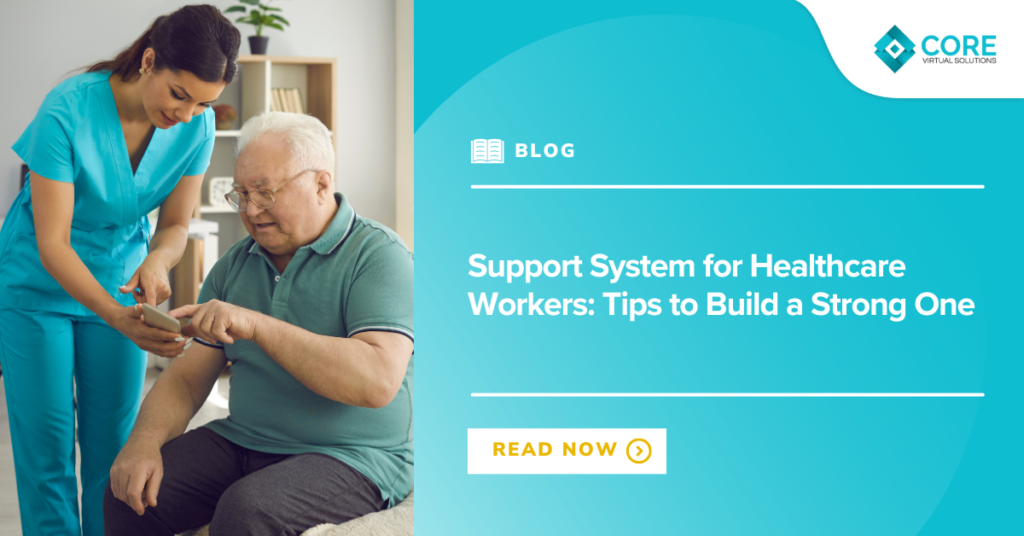Why is a support system for healthcare workers important?
A strong support system for healthcare workers is more important now than ever. The physical and emotional toll of working on the frontlines cannot be underestimated. Additionally, long hours and high levels of stress can lead to burnout, compassion fatigue, and even mental health issues. Certainly, a support system can provide healthcare workers with the resources and tools needed to cope with the demands of their jobs.
This includes access to counseling services, peer support groups, and wellness programs. Additionally, a support system can create a sense of community and connectedness among healthcare workers, which can help reduce feelings of isolation and encourage open communication. Ultimately, a strong support system for healthcare workers can lead to better job satisfaction, improved patient outcomes, and a healthier healthcare workforce.
Here’s how you build a support system for healthcare workers!
 1. Artistic Expression for Therapeutic Release
1. Artistic Expression for Therapeutic Release
Encourage healthcare professionals to explore artistic expression as a form of therapeutic release. Whether through painting, writing, or music, engaging in creative outlets provides a unique way to process emotions and build resilience.
Also, being a frontline worker may take a toll on someone. It has been proven that doing art helps relieve stress that healthcare professionals face in their daily work lives.
 2. Nature Retreats for Mental Restoration
2. Nature Retreats for Mental Restoration
Organize nature retreats designed for mental restoration. Taking healthcare professionals away from the clinical environment and into natural settings can offer a rejuvenating escape, fostering a deeper connection between colleagues.
Retreats may also serve as a venue for healthcare professionals to meditate and reflect on their thoughts, giving them time for relaxation that they very much deserve.
 3. Culinary Adventures for Team Building
3. Culinary Adventures for Team Building
Bond over culinary adventures. Team building through shared cooking experiences not only cultivates camaraderie but also allows healthcare professionals to unwind and connect in a non-clinical setting.
Aside from having a fun shared experience as a team, going on culinary activities serves as a new learning venture for healthcare professionals. This is a skill they can use in preparing healthy meals for themselves to get through that long hours at work.
 4. Storytelling Circles for Shared Experiences
4. Storytelling Circles for Shared Experiences
Initiate storytelling circles where healthcare professionals can share their experiences through narrative. This unconventional approach fosters empathy, understanding, and a sense of community built on shared stories.
Exchanging experiences they’ve encountered in the work field- may it be good or bad, also helps with relieving stress as this serves as a form of release rather than keeping it bottled up.
Click here to read all about How to Lead Your Team Through Challenging Times: Leadership in Times of Crisis.
 5. Skill Swap Sessions for Professional Development
5. Skill Swap Sessions for Professional Development
Facilitate skill swap sessions for professional development. Healthcare professionals possess a myriad of skills beyond their clinical roles. Creating a platform for skill exchange fosters a culture of mutual learning and support.
Being able to learn from your peers is a good platform for bonding and team cultivation. With all the healthcare scenarios that they encounter daily at the workplace, having a wide array of medical skills in their back pocket will definitely come in handy.
 6. Fireside Chats for Collaborative Reflection
6. Fireside Chats for Collaborative Reflection
Host fireside chats for collaborative reflection. Gather in informal settings to discuss challenges, successes, and aspirations. The warmth of the metaphorical fireside encourages open and honest conversations.
It promotes open discussions and encourages healthcare workers to share their thoughts and possible suggestions for team growth. Practicing this may also be an opportunity to assess necessary improvements and tweaks in handling workloads in the healthcare industry.
 7. Celebrating Micro-Accomplishments
7. Celebrating Micro-Accomplishments
Celebrate micro-accomplishments regularly. In addition to major milestones, acknowledging and celebrating small victories contributes to a positive and supportive work culture.
Celebrations need not be extravagant. A small cake for reaching the week’s goal or even just getting through a hectic day can go a long way in terms of uplifting the team’s spirit. Appreciation is a great way to boost morale and give healthcare workers motivation to get through the day.
As healthcare workers who face the challenging world of medicine on a daily basis, you must take into account the importance of having a good and stable support system. This is the key to building and maintaining a strong team.
Leverage our Virtual Medical Assistants and see the results for yourself!
Discover the ultimate solution for streamlining your medical practice: our Virtual Medical Assistants! These professionals will also help you how to lead your team through challenging times. Our team of highly skilled Virtual Medical Assistants offers unparalleled care and assistance for both your patients and your practice. Say goodbye to extended wait times and limited availability, and say hello to personalized support. Our Virtual Medical Assistants can take care of all aspects of patient care, enabling you to prioritize your patients. Experience the transformative results firsthand–start by scheduling a short and quick consultation call with us by clicking here!








